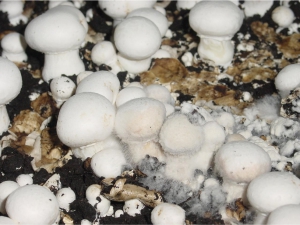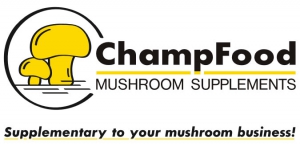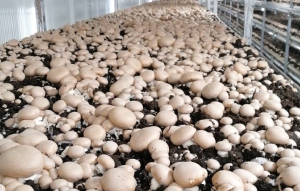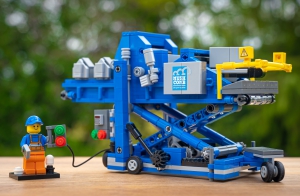
Mushroom Matter
Welcome on our platform. Why MUSHROOM MATTER? Because mushrooms play an important role in our lives as well in business. Our goal is to bring the world the very latest mushroom news with the upmost care to support the positioning of our beloved Mushroom.
Checking the CO2 equipment
For optimal climate control, accurate and reliable measurements are of course very important and maintenance to the CO2 box should be standard on every farm.
First thing would be to check the tubes and the magnetic valves for leaks. If valves are leaking they need to be replaced immediately as they will cause mixed air in the tubes.
All the tubes can get condense inside and block the air flow, also causing mixed air going into the CO2 sensor and sending the wrong value to the climate control computer. You can avoid this by blowing the tubes out regularly with an air compressor to avoid condense to gather inside them. Especially when tubes are not placed correctly and have no filter at the end of the tube this will happen easy.
A good practice on every farm would be to check the reference measument value on your CO2 system daily. That value is the CO2 measured in your outside conditions which is either outside, in the central duct or wherever the outside measurements sensors and CO2 tube are placed. The ppm value depends on where it is placed but should be consistent and seeing inconsistent value there can be a first indication that there is something wrong with your CO2 meter and some maintenance is needed. A good portable, calibrated CO2 meter can be a great help and indicator. You can detect problems before any misreading’s will cause more damage than necessary.
When all the tubes are clean and no leaks are detected the CO2 meter needs to be calibrated using a zero cartridge for the low values and CO2 calibrated gas for the higher values. Ask your supplier for the exact instructions.
Erik de Groot
Global Agriculture Services
This email address is being protected from spambots. You need JavaScript enabled to view it.
Cobweb, still going strong
Lately I am getting a lot of phone calls again about cobweb disease. The growers see the first signs appearing at the end of the first flush and by the time the second flush is starting, the problem practically gets out of control. To beat the problem it is necessary to know where the disease is coming from and how it grows and spreads.
The cobweb mould is a soil born fungus, using a vector (taxi). The vector may be sand, dust, casing soil and all different materials used by the people on the farm. Think of brooms, shovels but also mushroom harvesting equipment. This way the spores of the fungus are transported. But the fungus does not have to reach the state of sporulation to be infectious. If the fungus is damaged is splitters like glass. Small particles of the fungus can regrow fast into a new patch of cobweb again. So only touching the fungus by hand or by watering is enough to spread it like wildfire. It grows best under warm and moist conditions. So to slow it down it will help to lower the RH in the room and to drop the temperature a bit. But it will not stop it.To stop it you will have to find the origin of the infection and stop that. Many of the infections I see at this moment seem to start during the first flush so I immediately look at the harvesting on the farm.
We make sure pickers change the gloves regularly and disinfect the knives every day. The clothes of the pickers have to be changed daily and we look at the logistics of the farm. No one is allowed to move backwards in the schedule. In other words, if you where in a second flush, never go back into the first. For the grower it means a lot of cloth changing. After every check of the rooms. On many farms it is also necessary to look at the handling of the trays. Testing showed that many of the multiple use trays are infected with moulds. Even trays that are claimed to be disinfected. An effective method is to make sure that multiple trays are staying in the room where they are used. So if they are left over after the first flush, leave them in that room and use them in the second flush. If trays are coming out of the room with a possible infection, store them separately. And not in a room with other packaging.
The best way is to carry out the disinfection yourself. Steam the incoming trays properly in a container or a room designed for steaming out. Preferably not in a cookout room because the trays will smell terribly after that. After cooking out one can use a swab test and an agar tray to see if the trays are clean enough to be allowed onto the farm.
So to eliminate this disease make a list of possible infection moments and go through the list one by one. Only this way, by taking out all possible infection points, the disease can be controlled. Because chemical control is almost impossible and most of the times not allowed. And if you see the disease it is already to late to do something. The only thing left at that moment is to cover it widespreaded with salt and to stop watering immediately. And then start eliminating it with all possible measures.
By Ray Samp, Agari Culture Mushroom Consulting Services
ChampFood International is a market leader in the worldwide mushroom industry. For that reason they are in contact with many renowned composters, mushroom growers and consultants.
Due to their international network they are familiar with the latest developments, trends and newly acquired knowledge.
Frequently they ask their international contacts to share their experiences and knowledge with them.
This time it’s Ray Samp’s turn. They asked Ray to share his thoughts regarding the differences between Dutch and US mushroom growing strategies.
Why do they do what they do?
Reishi Mushroom for Hair Growth
In this article, you’re going to learn about reishi mushroom and how it can grow your hair. You’ll learn of the latest scientific research surrounding this ancient herb, and how you can get started reaping its benefits today.
First, I’ll introduce you to this 2000-year-old herb and its uses in Ancient China.
Second, I’ll dissect recent scientific studies surrounding reishi mushroom and its various properties to determine whether it’s an effective treatment pattern baldness.
Third, I’ll share with you three ways of supplementing with reishi, two of which are my very own hair growth recipes which I’ve personally used with great results.
What is Reishi Mushroom?
Regarded in Asia as the “herb of spiritual potency,” reishi mushroom has been in use for thousands of years alongside other herbs, like Fo Ti. It goes by many names, including lingzhi and G. Lucidum, and grows at the base of deciduous trees.
While wild varieties of this mushroom are rare, lingzhi is cultivated today on hardwood logs and woodchips.
The mushroom itself has a corky texture and is flat-topped. It typically has a red varnish and a kidney-shaped cap, and while other colors do occur, red reishi is the most well-known and studied.
With a variety of therapeutic uses, including immunomodulation and as an antioxidant, it is no wonder researchers have focused in on this versatile mushroom and studied it extensively.
But, the question this article will aim to answer is, “can reishi be used to treat alopecia?”
We welcome GROWTIME on board of Mushroom Matter
We welcome GROWTIME on board of Mushroom Matter! We are very pleased with this international player in the mushroom industry on our platform.
GROWTIME is a Polish based company who specializes in commercial mushroom farm equipment, especially mushroom picking lorries.
They have years of experience in the area of building machines to support production processes.
Most of their expertise has been gained while working on technical solutions to support industrial scale mushroom farming and harvesting.
Their flagship products help automate harvesting processes, while their full product range includes standard, off-the-shelf designs as well as machines tailored to individual requirements and dimensions.
Their quest for the optimal solution never stops, while balancing efficiency with durability of each of their products.
To learn more about GROWTIME, please visit their website here!
Plant Breeders' Certificate for Lambert Spawn
Since the beginning of June 2021 Lambert Spawn has obtained their Plant Breeders' Certificate for their new brown hybrid. After investing in a premium quality new brown hybrid. As Lambert Spawn brown strains always have been in the 8-series, they called their new brown hybrid LS818. It was first introduced on the US market, but for some time it is also being delivered to other parts of the American continents. The market for brown mushrooms has been dominated for quite some while now, so Lambert Spawn had to make sure they were able to compete on quality, consistency and speed during growing.
The market in Northern America accepted the new LS818 quickly and the production for this new brown hybrid was boosted in USA to make sure to meet this new demand. This fast growing demand of the LS818 was caused due its high and consistent quality, but also the time of growing fitted the growers very well. Until now the LS818 has been delivered on Speed Spawn and Millet for the North American market.
Since Lambert Spawn obtained their Plant Breeders' Certificate for the European market, they started with small scale testing with different farms in Europe so far. To see how it reacts to European compost within different countries. So far the results look good as we have seen in the US-market. Step by step Lambert Spawn in Europe will increase their capacity for the LS818 and work closely together with European mushroom farmers to get the best results out of this new strain.
LEGO Headfiller, don't miss out on this!
Mush Comb announced before that in their 25th anniversary year they would introduce their own unique (covid-proof) celebrations.
One of the great ideas around this anniversary year is their headfilling machine made from LEGO!
Bob explains. “Our focus has always been on getting young people excited and on board of our industry. And even in these days LEGO is also extremely popular among adults.
The idea originated from my childhood. Relatives of ours owned a carrot farm and when my brother and I would stay over, we loved helping on the land during daytime and playing with tractors and other agricultural machinery toys until late in the evening.
I have great memories of that period, which resulted in creating these beautiful toys for the mushroom industry. After looking into various options, we found that using LEGO was the ideal way to make this possible.”
Do you also want to own a Lego headfiller?
Or even a Lego farm? That's possible!
To see how much interest there is in the sector to own a LEGO farm, Mush Comb is doing this inventory.
A great idea to give YOUR FARM as an unique Christmas gift to your family and/or to all harvesters, don't you agree!
If you are interested, please follow this link and let us know if you are interested!



























